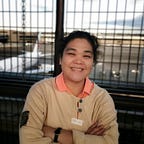Scaling Up Your Business Fast by Dan Napa
Last January 20, 2020, John Clements Consultants, together with the Harvard Business School Club of the Philippines, hosted “Scaling Up Your Business Fast — Building Energy and Speed in an Organization” with Christo Popov.
Christo Popov has over 17 years of experience in sales, marketing, and management as a member of the Scenario Planning Team, Shell International; COO, Shell Bulgaria; General Manager, Shell Taiwan; COO Business Development, SAB Miller; and General Manager, Intersnack Bulgaria. He is founder of over 30 companies in the field of trade, FMCG, real estate, internet marketing, and more. One of these is Fast Track, a company actively involved in strategy and execution assignments of companies in Europe, Africa, and Asia. Christo is a frequent guest speaker in international forums, university events, TV and radio programs, and has a number of publications on entrepreneurship and management, including Forbes, Harvard Business Review, and many others.
In his talk, Christo focused on the key points of scaling up businesses — energy and speed. He started by framing the conversation in the realities of the world today. With great advancements in the technological space, businesses are being disrupted left and right. The size of a company is not an assurance that it will be able to weather all storms — case in point: Kodak. This multi-billion, multinational enterprise made over USD 1 billion in profit in 2011, then filed for bankruptcy in 2012. In the blink of an eye, a 140-year-old enterprise was wiped out of existence. Organizations have to be wary of disruptors outside of their normal realm of existence. The likes of Ford are being disrupted by tech companies like Uber, Google, Apple, and Tesla.
In this environment, Fast Track was able to grow rapidly. Within a few years, it already boasts of over 400 clients in more than 30 countries. By leveraging technology and data, Fast Track aims to help companies identify trends and anticipate where their market is going. In order to do this, the company employs the key principles of energy and speed.
An organization’s energy is dependent on the mindset of its people. Targets must be unrealistic and hard to achieve rather than having small targets that are easily reached. This, according to Christo, drives an organization forward. To dream is one of the key drivers in obtaining organizational energy. Next is clarity — having a singular vision and conviction to stay true to your company’s objectives. Lastly, authenticity — staying true to one’s nature is vital to gaining energy. If your company’s values are not aligned with your personal values, it causes a rift between the mindset of employees and the company, which leads to poor management and decision-making.
On the other hand, in order for an organization to have speed, there needs to be a clear set of priorities. These days, companies are multi-faceted and tend to have multiple lines of business. Setting clear priorities makes a company more agile because there is no room for deviation. Same goes for alignment — all levels within the organization must be aligned to a singular vision, which accelerates the achievement of this goal. Lastly, there needs to be a culture of learning — having a learners’ mindset keeps organizations quick because problems can be resolved fast with historical and data-driven decision-making.
In addition to energy and speed, Christo shared five principles that help guide companies in navigating the age of disruption. First is the 80/20 Principle, more commonly known as the Pareto Principle. This simply means that 20 percent of your effort must go to things that impact 80 percent of your business. Prioritization is key to gaining speed for an organization. Second is Simplicity, quoting Leonardo Da Vinci, “Simplicity is the ultimate form of sophistication.” Being able to trim away unnecessary parts of your business leads to speed within the organization. He cited that while Dell and HP have over 40 models of laptops to choose from, Apple outsells these two combined with only three models. Third is Focus — an organization must be relentless in pursuing its goals. Of course, this has to be aligned with the right decisions that are based on data. Fourth is Brutal Honesty, which brings us back to the case of Kodak.
Finally, Christo likened the essential qualities of a company to that of an elephant and a cheetah. Big companies have predictability and stability, much like an elephant. The energy of a big company is essential to staying in the course and being focused on your strategy and goals. However, a company must also possess the heart of a small company, making quick decisions and having a learner’s mindset. Just because your company has been established for a long time does not mean that your company is not vulnerable to outside forces. Being quick to adapt is a key survival quality in this ever-changing world of technology and data.
Please visit and join the John Clements Talent Community.
About the author:
Dan is a Business Management graduate of the Ateneo de Manila University. His interests are shipping, sports, radio, game development, and animation industries. When he’s not working, Dan can be seen spending time on his bike. He loves riding anything with two wheels and often goes on adventures around the city or in the neighboring mountains surrounding Manila. His love for bikes is only surpassed by his love for food; so far, food has been winning.
